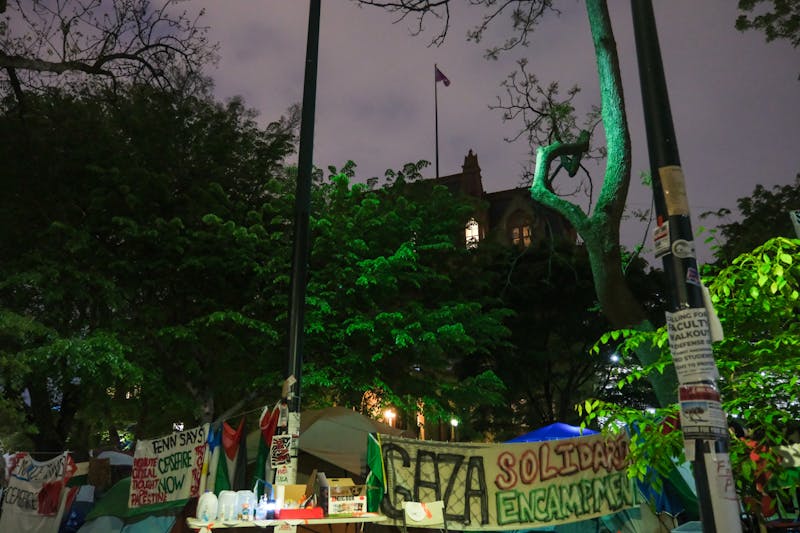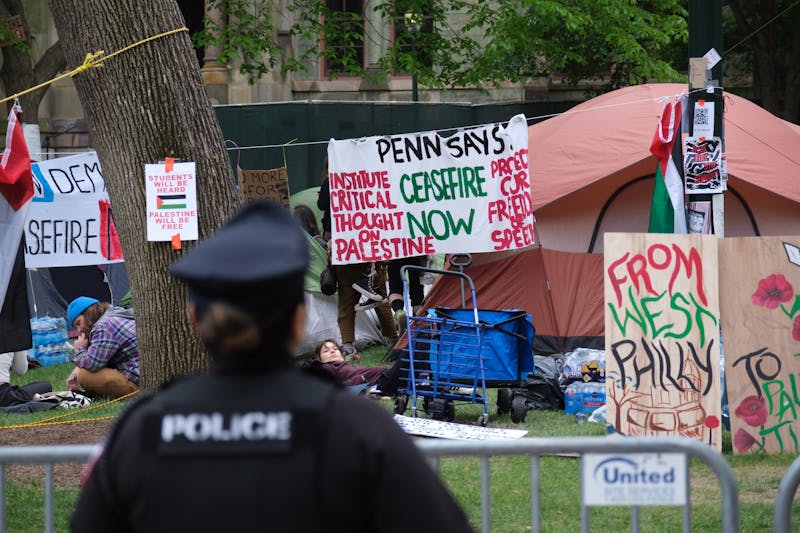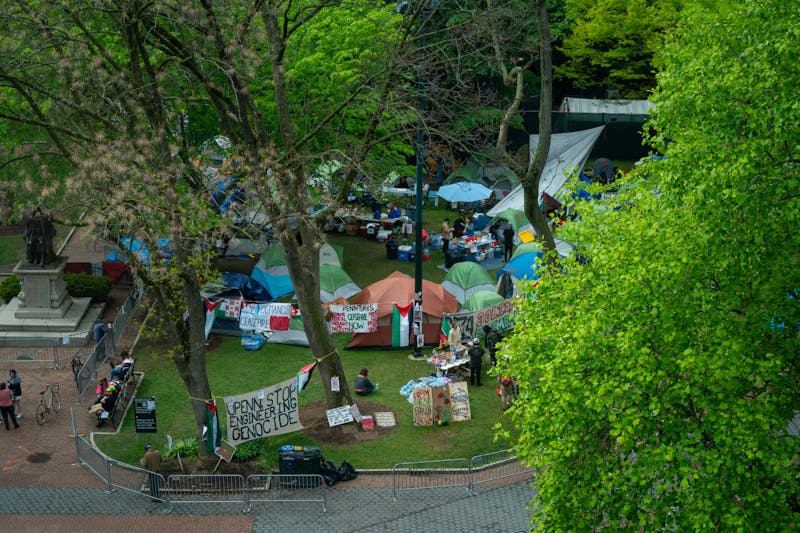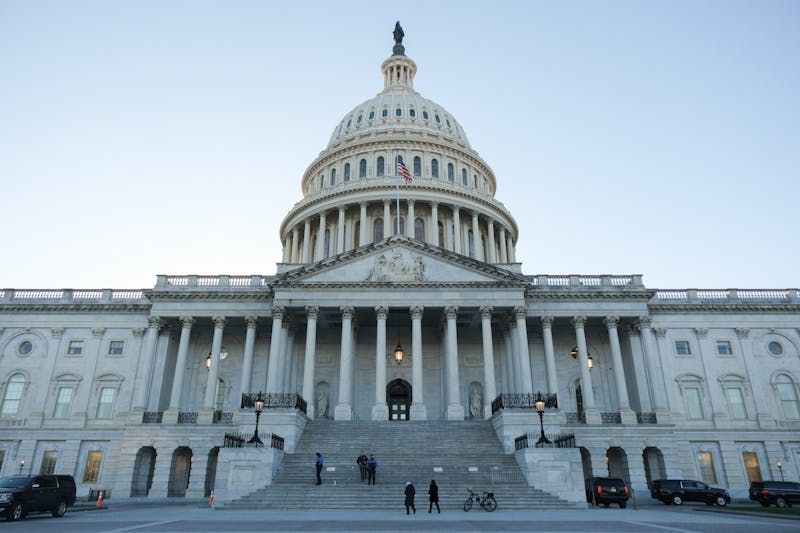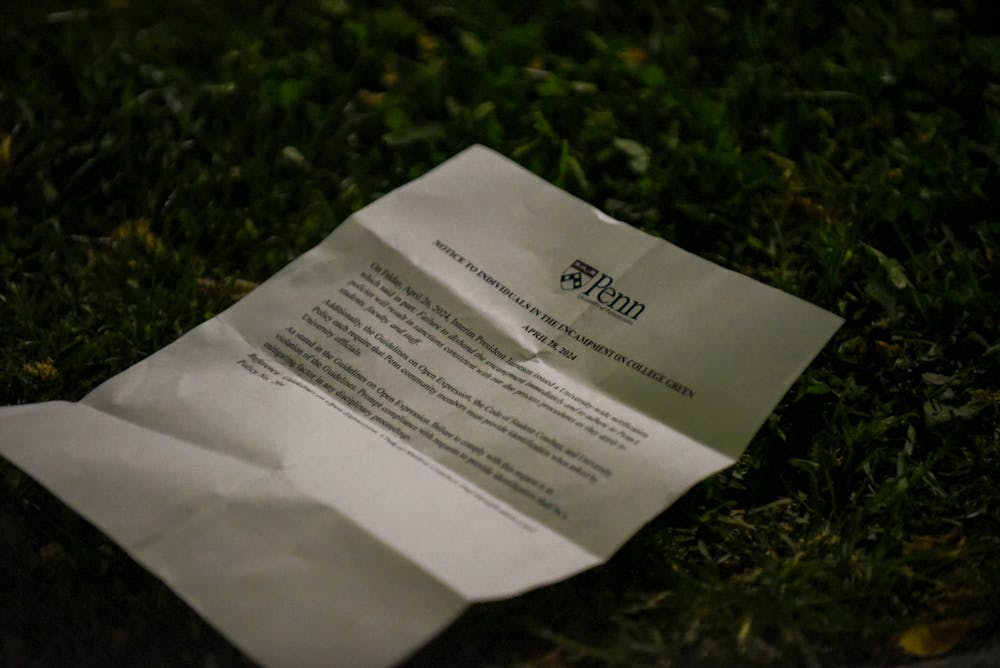
Committee on Open Expression Chair Lisa Bellini shared “anticipatory guidance” for demonstrations with The Daily Pennsylvanian — guidance which she said was provided to Interim Penn President Larry Jameson and Provost John Jackson Jr. on April 26.
The guidance’s release comes amid a pro-Palestinian encampment on College Green, which is currently in its fifth day. The encampment began on April 25, and according to Bellini, the guidance was provided to Jameson and Jackson one day later. It elaborates on Penn’s policies for identification checks and for individuals involved in demonstrations who do not belong to the University community.
The DP was not able to identify another time in recent history when COE issued guidance in anticipation of demonstrations on campus.
On the night of April 26, Jameson released a statement saying that the encampment constitutes “blatant violations of University policies,” alleging that the encampment violated Penn’s facilities' policies and writing that there have been “credible reports of harassing and intimidating conduct.” At the time, he called for the encampment to disband immediately. Bellini said that the guidance and Jameson's statement were independent from each other.
In a statement to the DP, Bellini wrote that "the COE has been very engaged on site with student leaders, protestors, and university administration to promote ongoing dialog[ue]."
Bellini said that the COE met earlier today to provide the guidance to the Penn community. She added that the committee's role is only in an advisory capacity.
The document, which was acquired by the DP, is titled "Committee on Open Expression Anticipatory Guidance for Demonstrations." It states that the guidance focuses on demonstrations given "current campus events," and references several of the University's Open Expression Guidelines.
The Guidelines discuss the possibility of asking for Penn IDs in University locations "in some circumstances related to safety and its enforcement authority."
"Free expression rights on campus may be restricted to those with Penn IDs, with appropriate notice provided to the Committee on Open Expression," the document says. "Non-university affiliated persons may have less expansive rights of open expression in University locations than those who are members of the Penn community."
According to the document, checking Penn IDs for safety concerns "ordinarily" does not include making a record of the information for disciplinary purposes. It adds that officials who request identification for "purposes of a possible disciplinary action" must give notice of doing so at the time of the request.
The Guidelines state that Penn "affirms, supports, and cherishes the concepts of freedom of thought, inquiry, speech, and lawful assembly." They also state that the substance of expressed views "is not an appropriate basis" for any restriction or encouragement.
However, the COE also affirms the right of individuals to "pursue their normal activities within the University" and states Penn's commitment "to protecting all members of the Penn community from harassment, intimidation, or threats of violence."
The guidance notes that several forms of conduct by individuals participating in a demonstration would violate Penn's guidelines — including speech that "incites violence or harasses particular individuals," the blocking of entrances or exit of buildings, threats to cause injury to people or property, and sound in excess of 85 decibels when measured 10 feet away from the source.
A section of the anticipatory guidance also focuses on the participation of individuals outside of the Penn community, writing that the guidelines "address themselves explicitly" to members of the University community in a University location.
"The extent to which the privileges and obligations of these Guidelines may be made applicable in particular circumstances to individuals who are not members of the University community shall be determined by the Vice Provost or delegate," the document states.
The Daily Pennsylvanian is an independent, student-run newspaper. Please consider making a donation to support the coverage that shapes the University. Your generosity ensures a future of strong journalism at Penn.
Donate







